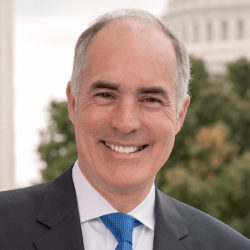

Traditional means of saving for retirement aren’t working anymore for a large number of Americans, according to testimony at a Thursday hearing of the Senate Special Committee on Aging.
The hearing, entitled “A Financially Secure Future: Building a Stronger Retirement System for All Americans,” examined potential solutions to close retirement gaps and expand financial security for America’s workers.
“All of us hope that when we reach old age, we will be able to enjoy retirement on our own terms. But the reality is that despite working hard their whole lives, too many seniors are barely able to make ends meet. Our retirement system allows millions of Americans to fall through the cracks,” Committee Chair Sen. Bob Casey (D-PA) said in opening remarks.
The committee’s ranking member, Sen. Tim Scott (R-SC), said in his opening statement that he believes the government should help small businesses launch their own retirement plans as a crucial step toward “boosting employee savings and closing the gap [between] how much money you need when you’re retired and how much money you can save along the way.”
“Research shows that workers who earn between $30,000 and $50,000 are 12 times more likely to save through employer-provided plans than on their own,” Scott added.
Shai Akabas, director of the Economic Policy Project at the Bipartisan Policy Center, called the current retirement system “piecemeal.” Although the system works well for many, “particularly those with stable employment, sufficient income, and opportunities to save throughout their life,” he said, he asked Congress to look at challenges affecting many others, such as career disruption and a lack of employer-sponsored retirement plans.
Nari Rhee, Ph.D., director of the Retirement Security Program at the University of California at Berkeley Center for Labor Research and Education, talked about disproportionate disparity in retirement security among home care workers, especially women and people of color. Women often have truncated careers, she said, with interruptions for child-rearing or caring for elderly parents.
“This not only results in foregone pay, but a lasting pay penalty, resulting in a significant cumulative reduction in potential lifetime earnings,” Rhee said.
Americans rarely stay at one job throughout their working years anymore, and according to J. Spencer Williams, founder, president and CEO of the Retirement Clearinghouse, that reality can present a problem when it comes time to retire. Williams testified that more than 30% of all participants in an employer-sponsored retirement plan, and almost 50% of minority participants cash-out their retirement savings when they change jobs.
“Getting people to start saving is job one,” he said.


